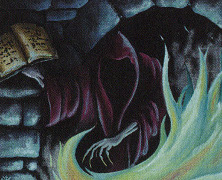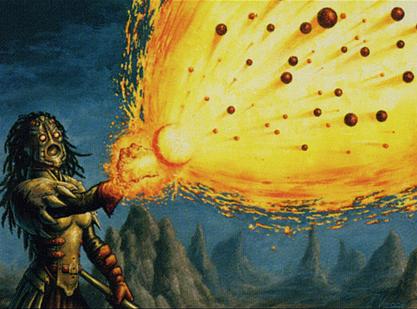Manila’s modern World Magic Cup Qualifiers (modern
WMCQ) is set on 5 September 2015. Our beloved Neutral Grounds will host this event
and will take place at Glorietta V’s ground level. Sweet news for every modern
player. A chance to put his name and be part of the 2015 Team Philippines
Worlds.
Philippine modern meta is full of combo decks. Ad
Nauseam, Bloom Titan, Collected Company variants, Twin variants and Infect are
the decks they say are the most rampant in the field right now. When asked for agro
decks, they responded with: Red Deck Wins variants, Affinity, Delver Variants,
Merfolk and Jund/Junk. And as for control decks, Tron variant, Grixis and UW were
their answers.
“I never thought I’ll be facing <deck>.”
“Alas! I boarded the wrong card. I never thought he’d
take those away for game three.”
“My side board card didn’t reach me in time, thus I
lose.”
“I have dedicated <number of side board
cards> for Boogles deck. I didn’t face one.”
“Most of my side boards are meant for combo decks,
I faced none.”
These are just some of the reasoning you will hear
from the players usually after a round.
Side board/ side boarding is a very important part/
aspect of our game. Let us talk about it.
In order to help us on how to improve our side
boarding, I asked some players if they can share their secret/ tips on how they
do it.
Juancho Fabregas: It is important to know your deck’s
weaknesses. From there, commit some slots on the side board.
Arrian Ordoñez: I normally check first the
archetypes that are my bad match up. Then play test those decks to help me
understand more. And lastly after games of playing against them, decide how
many side board cards I will allot to help me improve my winning percentage.
Paul Licarte: I do not like my sixty to be diluted
with the side boards. So most of my fifteen has one-off with Blood Moon and
Stony Silence as exception.
Ricardo Nisperos Jr: It is important also to know
what to remove from your sixty.
Rami Hourani: If I am on a tried and tested deck,
and is on everyone’s radar, I’ll probably need more devastating cards to help
me counter their preparedness.
Richmond Tan: I looked at the possible meta and
adjust my side boards accordingly.
Lizzie Dee: Gauntlet play testing with possible
side board cards in the deck is how we do things. In this way, we can fully assess
if those cards are really needed especially against bad match ups. And I also
read materials relevant to the format I intend to participate.
Allan Oca: I’ll check for any recent tournaments
and check the content of their side boards. And will try to analyze why they
have such. From there, I will try to improve my side board line up. Meta reading
is also a must.
Jackson Azarcon: Most of my side boards are for my
bad match ups, namely Tron and combo decks.
Carlos Callangan: In usually adopt the list of the
recently most successful deck. Then adjust his side board list a little in
order for it to perfectly suit in our meta.
Martin Marcelo: I want my side board option to be
very good against something in the meta instead of being just decent against many deck.
Hezekiah Dealca: I usually have the one-off card.
Take my side board plan versus Twin for example. I use Choke as one of them. Choke is very good versus blue decks. But
playing with two Choke in a meta so diverse, I don’t think it is a good idea
because chances of facing that many blue decks is slim. That’s why I prefer the
one-offs for there are cards that are good against not just one but against
another as well.
Philipp Schonegger: My fifteen complements my
sixty.
Eugenio Araño: When side boarding, remember these
questions: (i) How did I lose/win? (ii)Are there cards in my hand/ battlefield
that did little or no impact?
There you have it guys.
I hope you remember the
tips they shared.
Good luck in your preparation for modern WMCQ!
- Paeng




